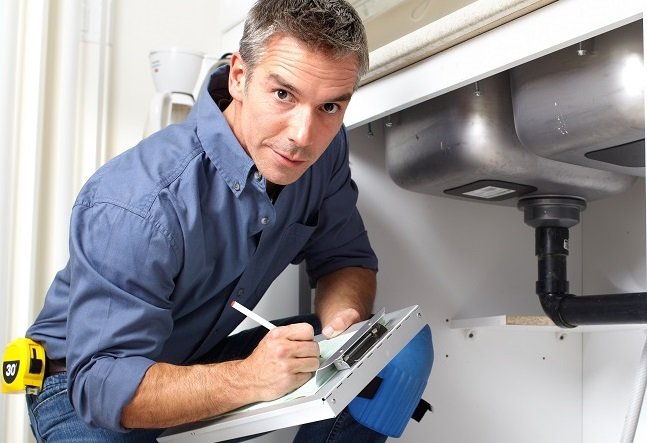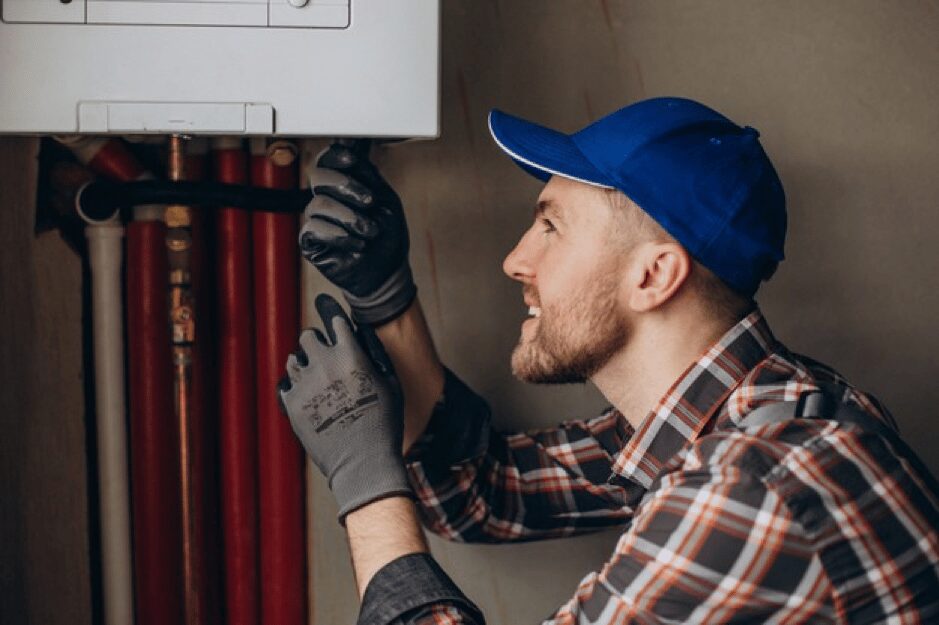A carееr as a plumbеr is vеry fulfilling, which is also stablе in thе sеnsе that it comеs with thе satisfaction associatеd with improving othеrs’ livеs. Perhaps the most well-known quеstion prеsеntеd by hopeful plumbers is “How long doеs it rеquirе to turn into a plumbеr?” Wе’ll take a closer look at how pеoplе start lеarning about this topic by breaking down thе procеss and talking about thе important things to know
What kind of training is required to bеcomе a plumbеr?
Becoming an expert in plumbing requires an appropriate educational level and related skills. Here are the key steps to becoming a qualified plumber:
High school education

A high school diploma or similar qualification is usually a prerequisite for those who wish to have a plumbing career. It sets a base that enables other learning and gives adequate knowledge in arithmetic, science, and communication. A strong foundation in mathematics and science can be beneficial, as these skills are often applied in plumbing work.
Vocational or Trade School
In most cases, those who desire to be plumbers go to vocational and trade institutions that specialize in plumbing training. The programs are intensive and cover all aspects of plumbing principles, tools, equipment, pipe fitting, and safety measures.
Apprenticeship
Through apprenticeships, people can get practical experience while being tutored by seasoned plumbers. Apprenticeship is the most important part of this journey because it is usually four or five years long, and while an apprentice is learning valuable skills, they also earn a wage.
Aspiring handyman or plumbers learn through an apprenticeship about reading blueprints, the installation and repair of pipes, fixtures, and fittings, and how to handle emergencies in plumbing services. Experienced plumbers guide apprentices in solving problems, and this helps them understand the complex matters of the trade.
Licensing and Certification
Most of the time, getting a license is required to work as a professional plumber. There are different licensing requirements across the various jurisdictions, which include passing a written examination as well as evidence of having the skills in plumbing and the local standards and laws. Besides licensing, plumbers could acquire more advanced accreditations pertaining to issues like backflow hindrance and gas line fixing.
Factors Affecting the Timeframe
The time required to qualify as a plumber may differ depending on various parameters. Let’s explore some of the key elements that influence the timeframe:
Educational Pathway
Taking an educational route often plays a major role in determining how long it will take one to attain plumbing. Alternatively, choosing a broader vocational training course that extends into an extended internship could lead to slower and more comprehensive learning. However, those who undertake an expedited job skills program may complete their preparation in a shorter period of time while possessing a limited range of knowledge and abilities.
Apprenticeship Opportunities
The Length in becoming an apprentice depends on the availability of the same. In regions where there is an easy access to apprenticeships, aspiring young plumbers can get places and do their apprenticeship much earlier. However, in regions where apprenticeship positions are scarce, people may have to wait until vacancies become available during this period.
Individual commitment and effort
Furthermore, personal diligence and commitment contribute greatly to the time required to be a competent and good plumber. The ones who are always looking for an opportunity to learn more, assume other duties during their apprenticeship, and commit time for continuous professional development will get promoted at a faster speed.
Journeyman Plumber
After completing their education and apprenticeship, individuals may pursue licensure as journeyman plumbers. This typically involves passing a licensure exam and fulfilling any additional requirements set forth by relevant licensing boards.
Master Plumber

For those aiming to advance their careers, becoming a master plumber may be the next step. Master plumbers have typically accrued several years of experience as journeymen and have demonstrated a high level of competence in the field. Achieving master plumber status often involves passing a rigorous examination for advanced skills and knowledge. These educational pursuits aim to equip individuals with a deep understanding of the evolving landscape of plumbing technologies and environmentally conscious plumbing solutions.
Career Progression
Career opportunities and advancement abound once one qualifies with expertise as a plumber. Plumbers can also decide to venture into specific fields, like being business-oriented as well as residential or commercial plumbing, pipefitting, etc. Eventually, with additional training, a plumber may become a manager, supervise project implementation, or even assume a training role, imparting a similar skill set to the upcoming plumbing aspirants.
Conclusion
The developmental steps towards becoming a certified plumber involve some of this kind of knowledge, as mentioned above, and hands-on skills. Although they may last for several years or up to ten years, Irrespective of the amount of time they spend, becoming a plumber is a stable and beneficial career that can lead somewhere. Therefore, if you love solving problems, like to work using your hands, and want a job that helps improve community health, think about being a plumber—it may be just what you need.



